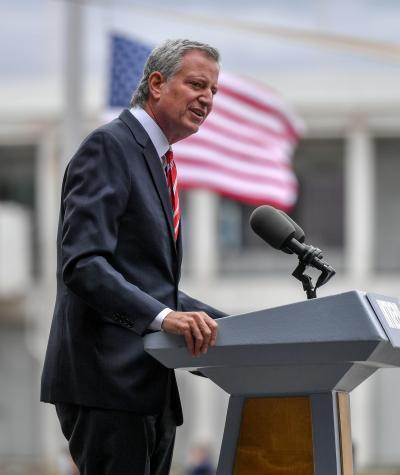The 2024 elections are still over a year away, but potential contenders for the White House have begun actively exploring candidacy, and some have even officially declared. As some hopefuls are already pushing the legal boundaries governing these exploratory activities, they might reflect on a recent decision by the Federal Election Commission (FEC).
The FEC imposed a $53,100 civil penalty involving a violation of these “testing the waters” rules that govern pre-candidacy exploratory activity, stemming from the 2020 presidential election campaign of former New York City Mayor Bill de Blasio.
Per a recent conciliation agreement, de Blasio’s campaign acknowledged that it accepted excessive in-kind contributions and failed to properly report contributions and expenditures arising from de Blasio’s exploratory activities.
Under the law, an individual becomes a federal candidate when they raise or spend $5,000, or consent to someone else doing so on their behalf, at which point they must register with the FEC within 15 days and begin filing periodic reports detailing their contributions and spending.
There are exemptions for certain exploratory activities including polling, traveling to key states or districts, and placing phone calls to gauge potential support. However, once someone becomes a candidate, they must retroactively disclose what they raised and spent on testing the waters activities.
While de Blasio formally announced his campaign for the Democratic nomination for president on May 16, 2019, he had begun exploratory activities going back at least as far as March of that year.
As Campaign Legal Center (CLC) alleged in a 2019 complaint, two committees organized as Section 527 organizations — Fairness PAC (a multicandidate federal committee) and NY Fairness PAC (a state committee) — made expenditures to support de Blasio’s testing the waters activities.
The committees made payments for polling, digital ad services, and travel. Fairness PAC and NY Fairness PAC also paid for office rent and consulting to underwrite de Blasio’s campaign expenses.
Because de Blasio failed to timely reimburse these expenditures, these payments were in-kind contributions from the two committees, subject to federal limits and disclosure requirements. Fairness PAC, as a federal multicandidate committee, was subject to a $5,000 limit on spending to support de Blasio’s exploratory activities. NY Fairness PAC, as a state committee, was limited to $2,800.
The committees ultimately spent over $100,000 in total, well over the applicable legal limits, and de Blasio’s campaign failed to disclose the payments as in-kind contributions, resulting in multiple clear violations of federal law.
Far too often, the FEC balks at enforcing even blatant violations of federal campaign finance laws that inflict substantial harm on voters and our election system.
Yet, once in a while, the FEC does its job and enforces the law, and it did so here — hopefully sending a clear message to the current crop of candidates and candidacy-explorers contemplating throwing their hat in the proverbial ring.
The Commission has regularly neglected to hold candidates accountable for abusing testing the waters regulations, including coordinating with super PACs. The de Blasio decision was a step in the right direction, and we encourage the FEC to continue to do its job as the 2024 election cycle — which will almost surely involve billions of dollars in money raised and spent — continues.

